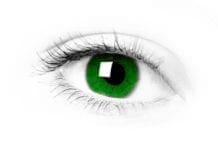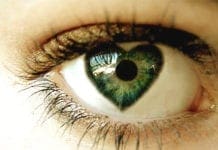Envy: It’s Good and Evil
In general, Muslims are among the most fearful of evoking envy of any people in the world, as we know the great dangers and problems caused by it from the Qur’an and Sunnah. In the Middle East, for example, one can walk down any street to see a vast array of amulets, charms, and invocations designed to keep the “evil-eye” at bay. (It goes without saying, there is no basis from the Qur’an or the Sunnah for any of these charms and amulets, May Allah protect us)
Envy comes to us when we see something in another person that we wish for ourselves. If we leave these feelings unchecked, these feelings can become self-destructive, eventually blinding us to every blessing in our own lives in favor of whatever we see as superior in the lives of others.
Envy is a shameful subject to discuss. If one feels it inside themselves, they will never admit it. After all, admitting to envy is an admission that another person is superior in some way to themselves. That in itself is shameful. If we find ourselves envious, we will also feel a tremendous guilt, especially as Muslims, as it is a feeling that is tantamount to ungratefulness for what we have been blessed with.
To be fair, however, envy is made up of good and bad. The good comes when we recognize a trait in another, usually a friend, that we wish to find in ourselves and then we note it, strive to emulate whatever it is, and eventually, if it is something we truly desire, make it ours.

A personal example of this is a time I felt this kind of envy regarding my friend.
She is a fastidious housekeeper. At the time when I met her I was not. It wasn’t that I kept a dirty house; in fact, I felt I was always cleaning it. That was the problem. I was so disorganized, and had so much clutter and useless junk (that I worried I might need some day), that my home was in an almost constant state of disarray, despite my best efforts.
Enter my friend. When I walked into her apartment, I was met by the smell of furniture polish and potpourri carpet freshener, pristine clutter less space, sparkling kitchen (where she kept layers of paper towels between each pot and pan), I was overcome with jealousy. I wanted that.
Honestly, it wasn’t until I saw what my friend had, and how she did it, that I realized exactly what I wanted-a pristine, clutter-free home (as clutter-free as you can get with small children anyway). Before, I knew I was frustrated with my home, but it was a vague, hopeless frustration. When I saw my friend’s apartment, I finally had an image of the gap between what I had, and what I wanted. Miraculously, after several donations to Goodwill and a division of a solid weekly schedule of housework. I reached my goal.
The thing is, I never told my friend she had affected me so much. I remember thinking that she might think me strange or shallow. But the fact was, she was the source of a very positive change for me, a change that, strangely enough, came through envy.
There is a different kind of envy, however, the kind of envy that is felt when you wish for something you see in another that is either impossible to obtain, like youth when you are old, long legs when you are petite, children when you are childless, the freedom of the childless when you have children, in short, anything that you cannot possibly have personal control over.
This kind of envy, when allowed dominance in a life, becomes a destructive force of bitterness, a drain of faith, and a source of hate. It is the kind of envy from which evil springs in the lives of the envious and the envied alike. Unlike constructive envy, nothing good can come from it. In fact, the more one indulges in it, the worse it becomes. Like the famous saltwater proverb, the more you drink from the well of envy, the greater the thirst grows for more.
Usually, when we find ourselves mired in the negative kind of envy, it can be distinguished from the constructive by one glaring symptom. It is painful whether I look at the beautiful, thin, fifteen-year-old and envy her youth and vitality of innocence that will never again be mine, or begrudge the success of a friend at some pursuit I have always dreamed of following but for some reason never have, the pain I feel at that moment is a siren blaring in my soul, telling me something is wrong.
When my friend, was accepted to law school last year, I was wickedly jealous. Going to law school had been one of my adolescent dreams. When I was thirteen I would sit in front of the television watching LA Law, and dream of the day when I, too, could wear beautiful and expensive “power-suits” and strut around a courtroom displaying my sharp as tacks intellect to its fullest glory and potential.
As life would have it (as it so often does), many factors of circumstance and personal choice teamed together to produce a different life. A life of writing, marriage, babies, and housework, and, although I could dress up in a suit (If I owned one), and parade back in forth in my living room expounding on literary theory, I doubt such an enterprise would be properly appreciated by my perplexed and agog family (one or more of whom would be frantically flipping through the Yellow Pages in search of “P” for “psychologist”.)
Although I consider myself to be a happy and contented person in general, I felt a keen surge of resentment when my friend came to me with the wonderful news of her own intention to become an attorney.
As she described with a sigh the rigors of the study of law, her trips to the city to refresh her spirit, and her future plans for an international law career, my dirty diapers, soapy water, and battered notebooks became exponentially less attractive.
I sulked for two days, no longer finding my usual (I admit, somewhat strange) satisfaction in the gleaming shine of my kitchen table as I sat down to my morning writing session.
 I knew that I no longer held any affinity for the study of law itself, but I still felt such a strong pang of jealousy, and, even worse, directed at a dear friend, that I was left in utter perplexity at the cause.
I knew that I no longer held any affinity for the study of law itself, but I still felt such a strong pang of jealousy, and, even worse, directed at a dear friend, that I was left in utter perplexity at the cause.
Eventually, I chalked it up to a reawakening of my void dreams that my friend had activated in her new pursuit.
I moved on and thought no more about my ruffled feathers, until, during research on the topic of envy, I came across this, rather humorous, poem by Jonathan Swift:
We all behold with envious eyes. Our equal raised above our size. Who would not at a crowed show stand high himself, keep others low?
I love my friend as much as you,
But why should he obstruct my view? Then let me have the higher post; Suppose it but an inch at most.
I realized I was no different from Jonathan Swift in my sentiments. I could have written that poem for goodness sake. It was clear to me that in my jealousy of Natalie, and in my jealousy in many other situations, I was reacting not to the thing itself, be it law school, beauty, whatever it was that sparked my envious side at the moment, but the recognition and approval that another’s pursuit, attribute or achievement garnered for them. That was the object of my desire. I always wanted the “higher post” and, until I realized that as the real truth and motivation behind my jealousy, and understood not only why I so craved that recognition, but how to get over it, I would never be free from the painful and disruptive emotions that come from destructive envy.
Through experience, one of the things I have finally learned is that my own feelings can lie to me.
Nowhere is this truer than with jealousy. As a result, I don’t always trust this rather wily emotion, and now always try (as soon as I am able to regain my faculties of reason) to apply a very simple test:
- Can I do anything about it?
- Is this thing saliently important to me?
If the answer is yes to both questions, then I decide how best to pursue that thing, be it weight loss, learning a language, a cleaner house, kinder personality-whatever it was that sparked an envious admiration in the first place.
If, on the other hand, the answer is no to either one of the questions, I know that what I am feeling is destructive, and as such is coming from either insecurity or a lack of meaning in my own life that can only be remedied by an honest and vigorous soul search that has absolutely nothing to do with the object of my envy. As Joan Didion wrote, “To cure jealousy is to see it for what it is, a dissatisfaction with self.”
To honestly acknowledge that dissatisfaction-and to strive to discover the ways in which to assuage it through change, is the only way to freedom from this kind of envy-and the only way to reach what we alone are truly meant to have, and to be.




